It’s late. The world is quiet—except for that one bird chirping in the dark.
If you’ve ever lain awake wondering what bird chirps at night outside your window, you’re not alone. In this article, we explore why birds chirp at night and reveal why they break the day-only rule.
Nocturnal vs. Diurnal Birds: Who's Who?
Let's get an idea of who our feathered friends are before we get into why they chirp at night. Birds can be divided based on when they're most active.
Diurnal Birds
These are our daytime songbirds. They're busy all day from sunrise to sunset. For example, robins, sparrows, and finches do their singing in the daytime. When the sun goes down, they tend to quiet down as well.

Nocturnal Birds
And then there are the night owls, literally. They live after dark. With unique features like low-light vision and highly developed hearing, nocturnal birds like owls and nightjars are perfectly adapted for nighttime adventures.

Crepuscular Birds
Some birds come out during the twilight hours of dawn and dusk. European robins and American woodcocks are some examples. Their songs occasionally bleed over into the night.
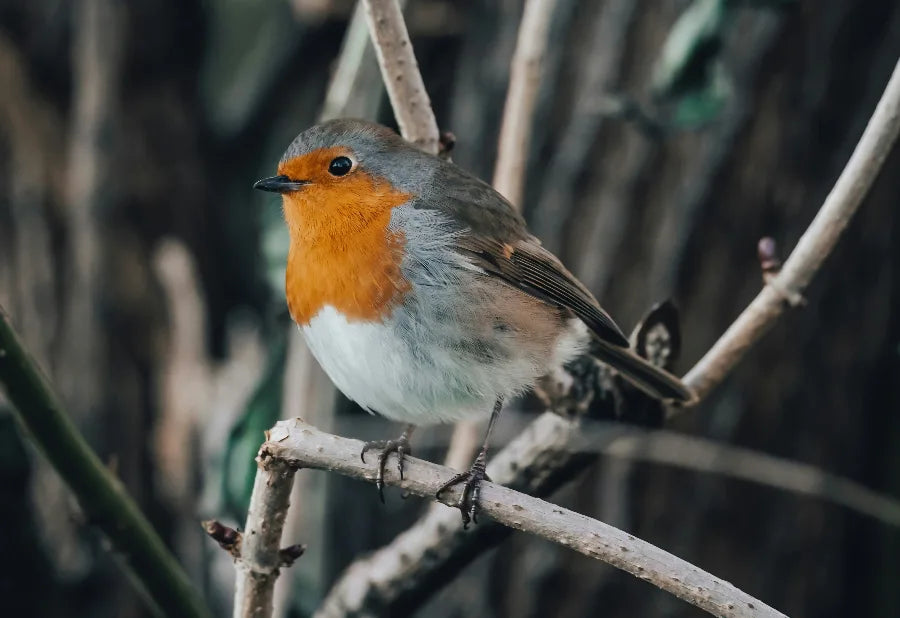
Why Do Birds Chirp at Night?
Now that we know the different bird lifestyles, let's tackle the million-dollar question: why do birds chirp at night? Here are the main reasons birds like to sing when the rest of the world is fast asleep.
Mating Calls
Love can’t wait for sunrise! Birds sing at night to attract a mate and showcase their fitness and readiness to reproduce. For many birds, darkness provides a quiet environment where their voices can be heard without the interference of daytime sounds. Seasonal variations also play a significant role here; during the breeding season, there is an increase in nocturnal vocalizations as they seek partners.

Territorial Communication
Another reason birds chirp at night is to defend their territory. When a bird sings at night, it's a way of showing a neon "Keep Out" sign. Any intruder who still enters their territory might suffer a vocal demonstration or worse. Acoustic marking is particularly crucial in dense habitats where visual cues are limited. The repetitive nature of some calls not only reinforces territorial boundaries but also provides a continuous reminder of the bird’s presence.
Navigation and Echolocation
Some birds use night calls as a type of "radio chat" to stay in touch with each other. These flight calls help birds stay in contact with each other and maintain group cohesion. Think of the Swainson's Thrush. This bird is recorded to make high-pitched calls when it migrates. Such calls act as beacons, guiding other birds in the group. At the same time, these calls help them orient themselves when the world is covered in darkness.
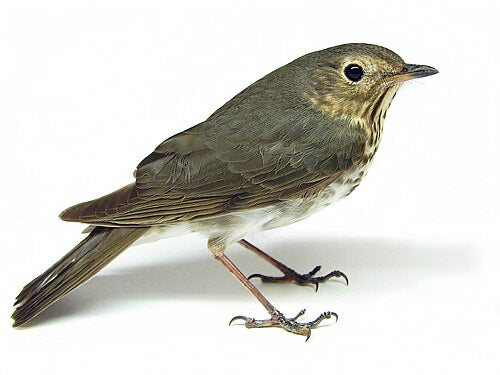
Environmental Interferences
Cities never sleep, with the perpetual glow of streetlights and noise. These human activities tend to confuse birds’ natural circadian rhythms. Also, as the climate constantly changes, so too are the behaviors of the majority of animals, including birds. Temperature and seasonality changes can lead to extreme alterations in migration and breeding habits.
Predation and Safety
Lastly, other birds chirp at night to look out for predators. Most birds also use their call to warn others. Owls’ whistles, screeches, and hooting are used for communication with their own kind, designating territory, and sometimes scaring off rivals.
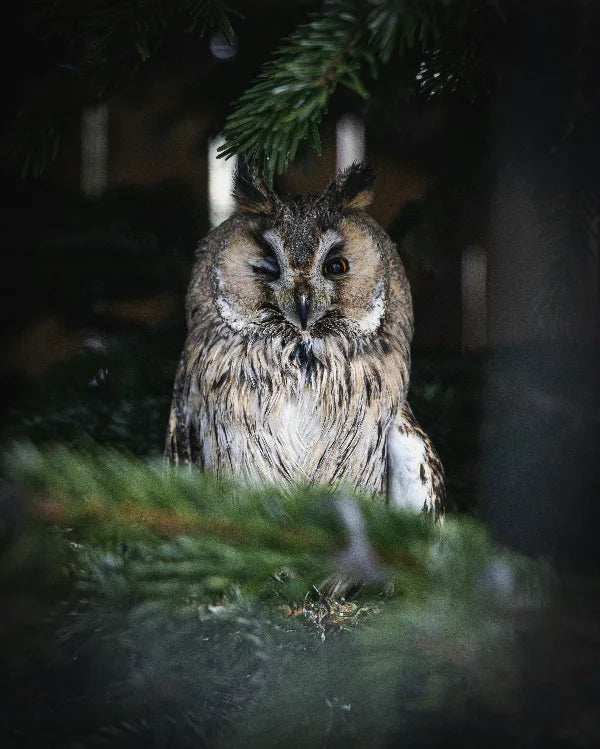
Common Birds That Chirp at Night
Having discussed the "why" of nighttime chirping, let's get a closer look at some of the birds that make our nights a little more melodious.
Nightingale (Luscinia megarhynchos)
In Europe and parts of Asia, the Nightingale holds the crown for nighttime singing. A male nightingale often sings after dark during the breeding season. Once a nightingale finds a mate, its all-night concerts usually quiet down.

Northern Mockingbird (Mimus polyglottos)
If you’ve ever been mesmerized by a bird that can mimic the sounds of others, you’ve likely encountered the northern mockingbird. This clever creature is capable of imitating over 200 varied sounds. Males without mates are especially famous for their night shows. They use their varied songs as a strategy to entice possible mates.
Eastern Whip-poor-will (Antrostomus vociferus)
With a name that echoes its very call, the eastern whip-poor-will punctuates the night with rhythmic, almost hypnotic sounds. This bird is a master of disguise and is found primarily in wooded areas. Its repeated “whip-poor-will” call not only establishes its presence but also marks the boundaries of its territory.
Owls
Owls are perhaps the most iconic night birds. Species like the Barn Owl, Great Horned Owl, and Eastern Screech-Owl are known for their haunting calls. These vocalizations serve multiple purposes, from attracting mates to marking territory. The soft, sometimes eerie hoots of an owl can be both mesmerizing and a bit unsettling.
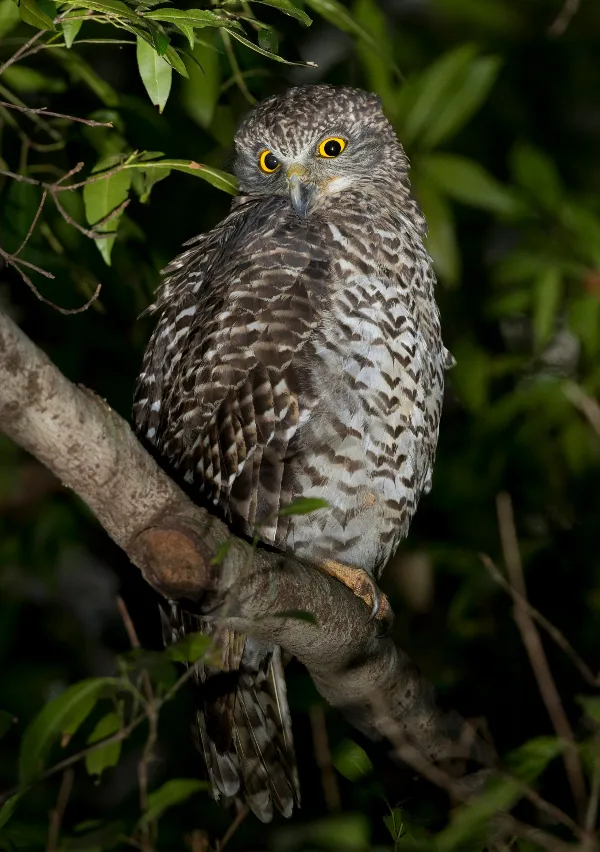
European Robin (Erithacus rubecula)
Interestingly, the European robin is a daytime bird that occasionally ventures out into the night. The man-made light makes them think it's still morning, so they will continue singing. This bird is a good example of how even birds with a routine schedule can be adjusted to a changing environment.
The Role of Night Chirping in Human Culture and Mythology
Throughout history, the melodic calls of night birds have captured the human imagination. Their calls have found their way into folklore, myths, and legends across cultures. Owls, for example, were sacred to Athena, the Greek goddess of wisdom, and seen as harbingers of knowledge.
The evocative nature of night bird calls has also found a home in literature and art. Edgar Allan Poe’s ominous use of the raven cemented the idea of night birds as messengers of the unknown. Even today, nocturnal birds appear in modern storytelling, from folklore-inspired fantasy novels to contemporary movies.
Superstitions surrounding nocturnal birds persist in various cultures. In Celtic traditions, hearing an owl hoot three times was believed to bring misfortune. Today, birdwatchers and researchers listen to these night songs with fascination, not seeking omens but understanding.
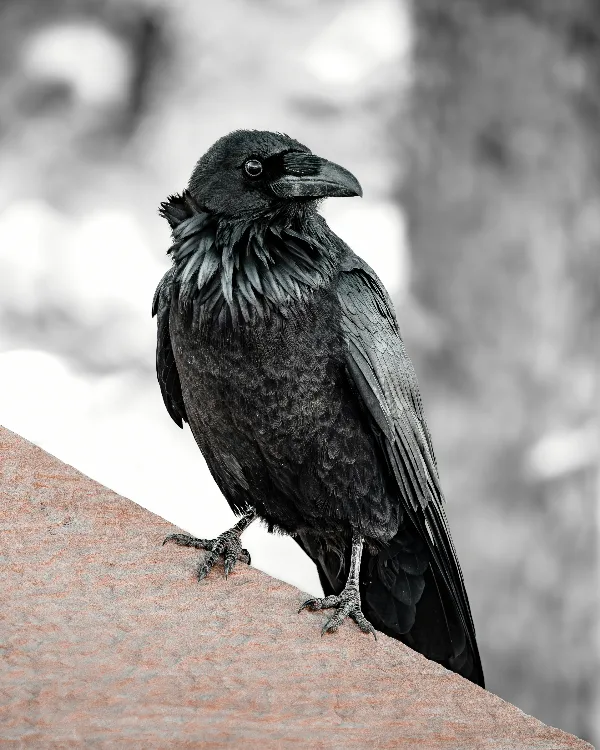
Appreciating Nature’s Nighttime Symphony
Rather than viewing nocturnal bird calls as a nuisance, consider them as a gateway to a hidden world. Each chirp is an invitation to observe nature’s nocturnal rituals. This shift in perspective transforms the night into a meditative experience.
Modern technology offers tools to enhance the experience for those who wish to explore further, such as smart bird feeder apps that can record videos and provide a unique window into the feeding behaviors and vocal diversity of night birds.
Final Thoughts
As our exploration of nocturnal birds ends, we are left with a deeper appreciation of each nighttime chirp. Birds chirp at night for a variety of reasons, whether for mating, marking territory, or responding to environmental cues. Their calls showcase their remarkable adaptability and ability to thrive when the world sleeps.

FAQs About Why Birds Chirp at Night
Do City Birds Chirp More During the Night Than Rural Birds?
Yes, birds in the city are more active at night due to artificial lighting and noise pollution. The urban environment causes many birds to shift their singing pattern to nighttime when it is less noisy.
How Have Night Birds Adapted to Nighttime?
Acute hearing and night vision (owls’ large eyes and tapetum lucidum improve night vision) are natural adaptations for nocturnal birds. Dull color diminishes the need for vision, as sound is the primary means of communication. Some nocturnal birds have camouflage patterns that help them blend into the nighttime landscape, protecting them from predators. In the absence of sight, sound takes its place.
Do All Chirping Birds Have Good Eyesight During the Night?
Not really. Most truly nocturnal birds, like owls, have excellent night vision to help them survive at night. Some diurnal birds chirp at night due to artificial lights or environmental factors, not superior night vision.
Do Birds Sleep If They Chirp During the Night?
Birds do sleep, but their sleep patterns can differ significantly from those of humans. Some nocturnal birds take short naps throughout the day and night. This action allows them to remain alert to both opportunities and threats while still getting the rest they need.
Are Birds Chirping at Night a Sign of Danger?
Yes, in some cases. Certain species use their calls as warning signals to alert others about approaching predators or sudden weather changes. This behavior serves as a critical early-warning system within their social structures.




Leave a comment
All comments are moderated before being published.
This site is protected by hCaptcha and the hCaptcha Privacy Policy and Terms of Service apply.